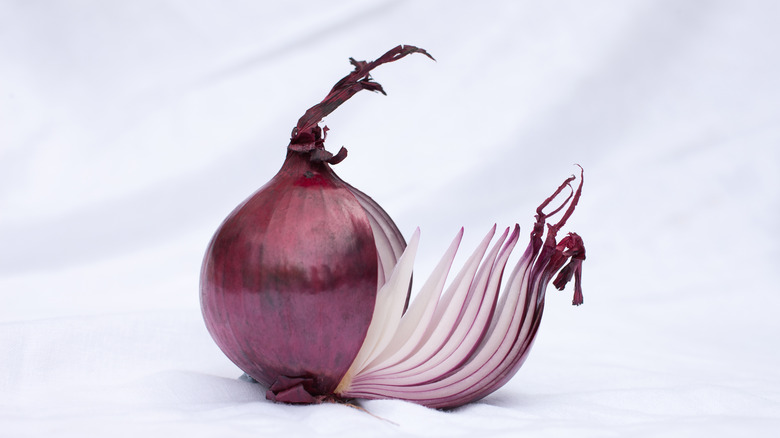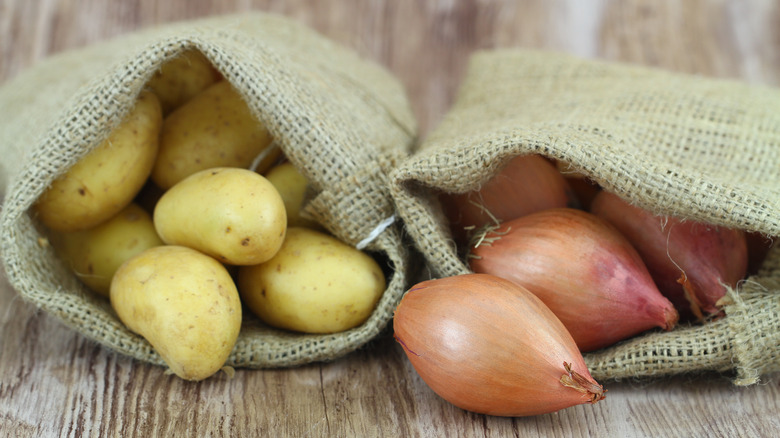Why Your Onions Leaked Before You Even Got To Use Them
Have you ever spent all day thinking about making crispy onion rings only to reach for the bulbs and realize that the alliums you purchased have started to leak and liquefy? We've been there and can confirm that there's no feeling more deflating. While it's bound to have happened to you at some point, we want to prevent weepy onions from making frequent appearances in your kitchen. But, in order to stop the seep, it's important to understand why onions leak before using them in the first place.
When an onion is sliced, cell walls are ruptured, causing a release of water, sugar, and other compounds that contribute to its aroma and flavor. You might notice this as a milky, translucent substance. However, leakage may also occur even if a bulb is left totally intact, the culprit for these oozing alliums being that they were stored next to potatoes.
Given that onions release large concentrations of ethylene gas, this can cause potatoes to spoil more rapidly. In turn, the increased moisture in spuds can also trigger onions to ripen more quickly, resulting in a dribbling bulb — consider the mystery of the unused yet still leaky onion solved.
Store your onions away from potatoes
Say it with us, poorly kept produce will lead to quicker spoilage, which is precisely why learning to properly store ingredients is a must. If the pristine onions you picked up at the market have since started oozing (in addition to turning super soft and sulfuric-smelling), this spoilage likely occurred from incorrect storage at home.
Even though the refrigerator might be the catch-all storage spot for produce when it comes to root vegetables, this is the last place you'd want to store the pungent bulbs. Unless onions are kept in a dry, dark, and relatively cool environment, they'll probably start sprouting, growing mold, and secreting liquid. Just remember that even if whole onions are left sitting in a basket somewhere like a well-ventilated pantry or cool cellar, the risk of leakage can only be avoided when alliums are kept separate from spuds.
As for how long bulbs can last under the right conditions, whole and unpeeled onions can have a shelf life of about three months. If the flesh is still firm, skins are still papery, and there's no obvious bruising or offensive odor, bulbs will taste just as great as the day you first brought them home.

